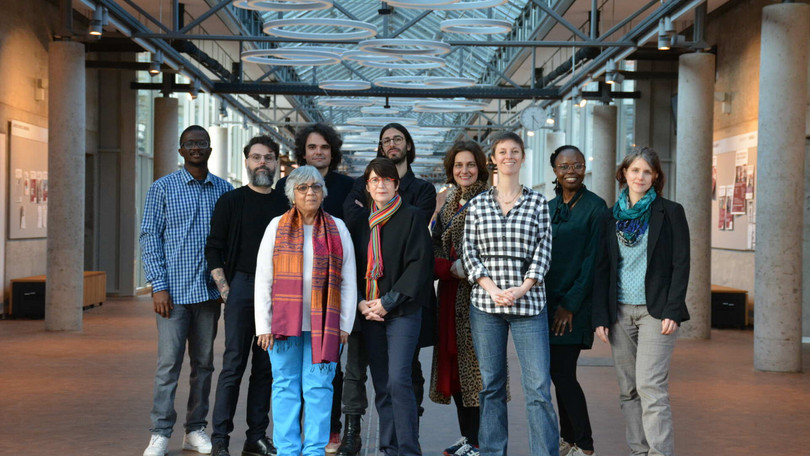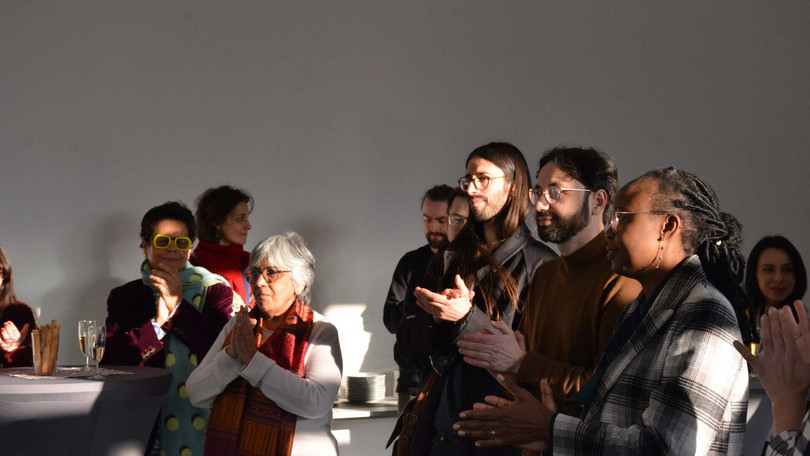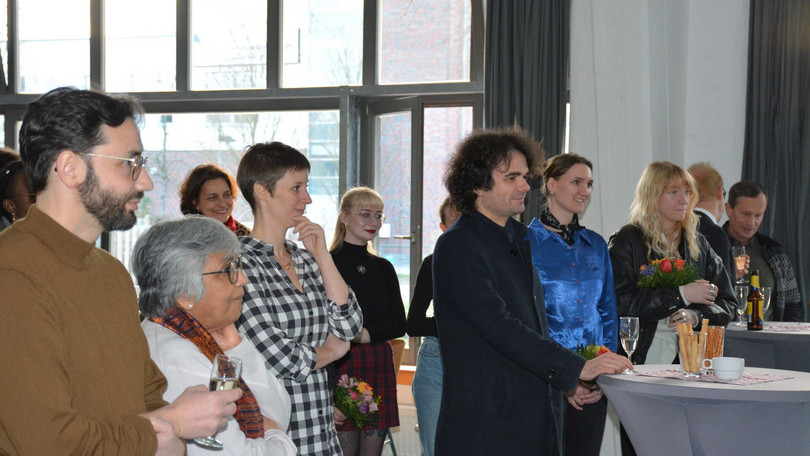A successful first year at the Leuphana Institute for Advanced Studies (LIAS) in Culture and Society
2024-03-11 The farewell to the first group of Fellows marks the end of a special year for the Leuphana Institute for Advanced Studies (LIAS) in Culture and Society, which was characterised by outstanding achievements and inspiring collaboration.
"We wanted an international IAS that invites the Global South into its research, we wanted an IAS that involves the public and we wanted an IAS that is anchored in Leuphana - and these ideas have already been successfully implemented in the first year", says Sascha Spoun, President of Leuphana, who initiated the founding of the Leuphana Institute for Advanced Studies (LIAS).
In this first year, it has been possible to bring together academics from various disciplines, from political science to linguistics and American studies, from philosophy to business administration and sound studies to communication and law as well as ethnology, with fellows whose home institutions range from India, the UK, Germany, the USA, Nigeria and Kenya to Brazil.
Susanne Leeb, Co-Director of LIAS, looks back on the planning: "When we designed our programme and guidelines, we did so in the hope of attracting academics who work in very different fields of research but who still have something to say to each other. From our point of view, it couldn't have gone better."
In addition to the individual research projects discussed in weekly colloquia, joint conferences and workshops have developed, as well as new formats for dialogue. The insights contributed by Public Fellow Katja Petrowskaja were invaluable for the Institute. The writer's openness to the Public Fellowship format was ideally complemented by a writing workshop with artistic-scientific approaches by anthropologist, filmmaker and poet Rosalind C. Morris and sound artist Pedro Oliveira, who came to LIAS as an Artist Fellow.
Collaborations have also been established with the Museum am Rothenbaum für Kunst und Kulturen in Hamburg, the Museum Lüneburg and the Scala cinema, which have facilitated encounters between science and the public. And in mid-March, part of LIAS travelled to South Africa for the first international scientific cooperation with the Centre for the Humanities Research at the University of Western Cape, under the direction of advisory board member Premesh Lalu.
LIAS attracted researchers from different parts of the world who were willing to take personal risks to advance their work. Their commitment has enriched not only the institute but also the university. Weekly meetings with researchers from Leuphana University have led to a lively exchange. Some fellows have been involved in university teaching, so that students have also been able to benefit from LIAS. And other fellows have been able to use the institute to disseminate their topics internationally. LIAS Fellow Lydia Radoli, for example, has been able to work on the difficult topic of the traumatisation of journalists in East Africa and discuss her knowledge and experience by participating in conferences in America and Europe.
The institute was rebuilt in 2023, funded by the MWK and the Volkswagen Foundation, around the Lüneburg focus of humanities and cultural studies. "LIAS is celebrating a very lively and inspiring year of cutting-edge research and collaboration," summarises Erich Hörl, Co-Director of LIAS. "We are confident that the connections forged during this time will continue in the future and that a top-class research network on issues of coexistence in globalised societies and, in particular, on strengthening social sustainability will emerge." An alumni programme is already being planned. At the same time, we are looking forward to the next group of fellows, who will start their work at Leuphana University at the beginning of April.



